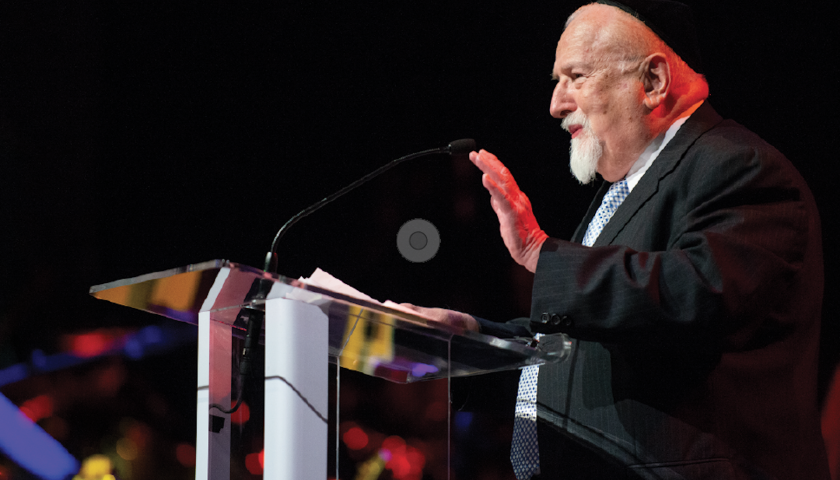Balancing a Jewish South African Budget
By Ilan Preskovsky
These tough, pandemic days may be particularly hard on the economy, but for so many Jewish South Africans, it seldom seems like there are anything but economic hard times. This, regardless of the fact that relative to most other South Africans, a large percentage of Jews are middle class, and relative to so-called “developed” countries, the cost of living here is fairly affordable.
There are, however, unique financial challenges to being both Jewish and South African – and all the more so if you keep kosher or at least keep a kosher home. I doubt I need to spell them out for most of our readers, but just in case, here are but a few of them:
First, as Jews, we tend to want to send our kids to Jewish and often religious private schools for a variety of reasons, not least of which is wanting high levels of education for our kids, both in terms of Jewish studies and a top-notch secular education that might, hopefully, give them a solid leg up in life while also grounding them in our millennia tradition. This comes with a steep price, though. Jewish private schools are very expensive and, worst of all, there’s little to be done to change that, what with their lack of government funding and wanting to actually pay their teachers and staff something that at least comes close to a living wage.
Schooling is, by far, the biggest unique expense to South African Jews, but for those of us who keep any level of kosher, the basic cost of living goes up significantly in relation to the rest of our countrymen. It is an unavoidable fact that eating kosher is noticeably more expensive, both at home and in restaurants. Vegetarianism is an option, I suppose, for those willing to adopt such a lifestyle, but vegetarian options are, weirdly, often about as expensive as meat, whether you keep kosher or not.
Even putting aside the unique expenses of being a practising Jew, there are major cost-of-living expenses that, if not unique to South Africans, are at least a particular challenge. And no, I’m not talking about paying for a domestic worker.
Admittedly, because of the poor quality of education in many public schools, private schooling is often a must, even for those who aren’t Jewish, especially when there’s no decent public school in their area, but this is nothing in comparison to the shocking state of public hospitals in this country, where excellent doctors and nurses are constantly undermined by under-funding and terrible mismanagement.
Unlike in the United States, it is just about possible to get by without any sort of medical aid because of this public option, but you’re literally gambling with your life if you choose to forego even a basic hospital plan. Again, not because of the quality of the medical professionals, but because these places are so badly run, you could literally die just waiting for them to find you a bed. And this is before the bank-breaking costs of specialists, GPs, dentists, psychiatrists, and the like. Medical aid is often extremely expensive, but it’s highly, highly, highly recommended, even if not strictly required, and it only becomes exponentially more so if you have children.
Finally, there’s the utter random tendency for the cost of basic goods to rise dramatically, seemingly without reason, and in a way that seems completely disconnected from the very idea of a flat inflation rate. Yes, we have one of the most volatile currencies on the planet, but even that doesn’t explain why it feels like the prices go up literally every single time you walk into a shopping market. Prices sky-rocket when the rand tanks, and they go up when the rand recovers. Petrol prices go up and down, but the cost of a pint of milk just goes up, up, up. It’s an easy thing to get used to, or forget about, but it takes its toll even without your noticing it.
Budgeting: Is it Even Possible?
With all of these factors added on top of basic extra expenses like rent/mortgage, travel, and even just basic entertainment, is it even remotely possible to create a budget that will fit it all? If even fairly successful professionals can’t make out by the end of the month, what chance do the rest of us have?
It’s a tough pill to swallow, but for the vast majority of us, debt is unavoidable; sadly, often welfare is too, or at the very least, major subsidies. Frankly, this is the reality for most of the people on the planet – and for many this is only if they’re lucky – and before even looking at any practical steps to be taken to alleviate financial problems, it’s probably time to reconsider prevailing attitudes towards money and the lack thereof. Not just in terms of crass materialism, but in the basic understanding that perhaps, just perhaps, it is not a moral failing to have an imperfect credit score and/or an anaemic bank balance.
Surprisingly, there were echoes of exactly these sentiments when I sat down to talk with Darryl Bennett, the wealth advisor at SASFIN, to get his perspective on our topic at hand. Bennett, who stresses a “holistic” take on personal finance, broached the subject with refreshing honesty and an utter lack of judgement.
He made it clear to me that however much you may try manage your money, to save, even to cut back on non-essentials, the simple reality is that there are times when you simply have no choice but to go to your parents or children for financial help, when piling on debt is simply unavoidable, when you may even need to go to Yad Aharon or the Chev for outside help. People can go broke from mismanaging their money or from greed, sure, but it can just as easily happen through forces completely out of their control or simply from the fact that the cost of living is often much higher than even well-paying jobs.
That said, there are very real ways to improve the day-to-day, month-to-month management of one’s finances. Bennett stresses that one of the most fundamental ways is to seek out professional help to balance both your books and your mind. This could obviously take the form of a dedicated financial advisor like Bennett himself (other options are available), but it could just as easily be about trying to work through your psychological issues around money with a trained therapist. Professional help usually justifies its cost, but if you simply can’t afford it, institutions like the Chev offer similar services as well.
There are also fairly obvious but not always easy ways to improve your own finances, even with so many unavoidable expenses. Bennett himself works closely with medical professionals to help clients cut down on one of their biggest expenses: medical aid plans. For some, being on a super-duper-private-comprehensive-plus-plus medical-aid scheme that costs R10 000 a month for a single person is actually necessary. Those with a penchant for spontaneous combustion, for example.
However, many people, as Bennett insists, are on a much more expensive plan than they really need. You may either not have enough medical expenses to justify any more than a hospital plan or you may have so many expenses that you end up paying out of pocket so much that it makes more fiscal sense to also be on a hospital plan, perhaps with extra gap cover, at a fraction of the price.
Along with budgeting smartly and being able to admit that sometimes you simply need outside help, Bennett also notes the importance of prioritising your needs and wants when you create a budget. And not simply in terms of cutting out any and all “unnecessary” expenses. It’s all very well, for example, to chuck your gym contract or stop spending any money on movie tickets because they’re not “necessary” expenses, however, not if doing so slowly but surely causes you to have a mental breakdown. If, however, giving your kids a world-class education is at the top of your priorities, it may be necessary to, for example, cut down on eating out or to rely more on buying raw foods and cooking for yourself than on expensive, ready-made meals. It’s as much a question of knowing yourself as knowing your money.
Obviously, there are a great many specifics one can get into when talking about balancing a budget – far too many to get into here – but, in many ways, these are secondary to the more fundamental, more essential need to ensure that you have the right frame of mind in place before you so much as look at a single dime.




